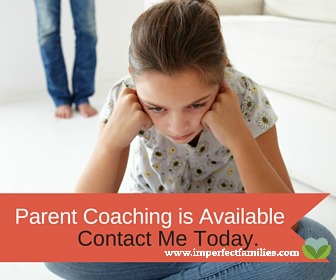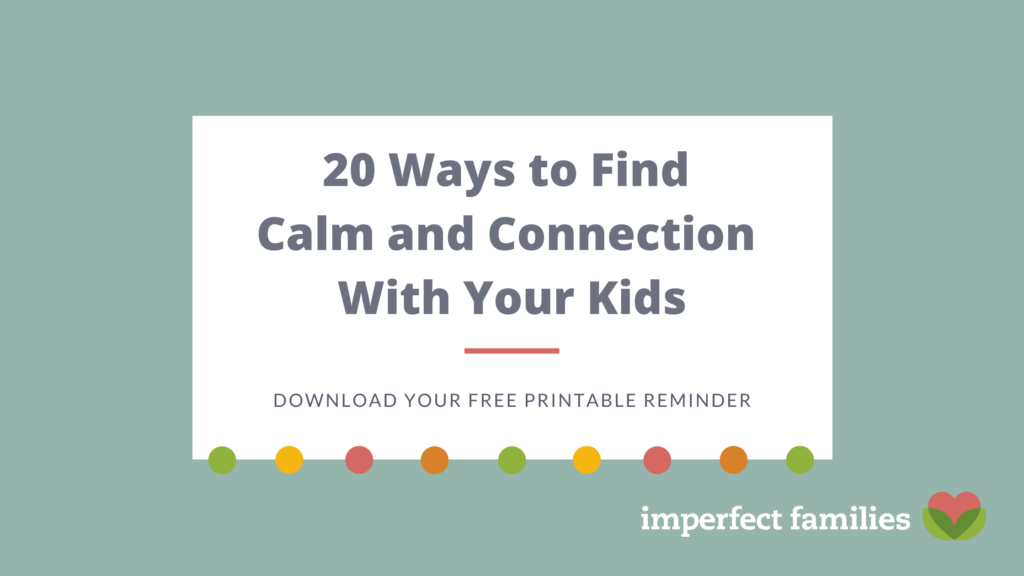
Heading out the door to school, I noticed my daughter didn’t have her backpack.
Rather than have her dawdle in the house, I volunteered to go in and get it.
As I was returning to the car, I stopped, “What am I doing? How will she ever learn to remember her backpack if I rescue her like this? She’s supposed to be responsible for her own stuff…”
A second later, reality set in.
This is not a pattern, she doesn’t always forget her backpack. Helping her in this one instance gives me an opportunity to show her kindness.
In a world swirling with parenting advice, it’s easy to get caught up in extremes and forget that finding flexibility and balance is actually more important.
Are You Caught In Extreme Parenting?
Here are some examples of good parenting strategies that sometimes go to extremes. Plus, tips for building in some flexibility.
“Be Consistent” – Children feel a sense of peace when they know what to expect from their parents. However, there are times when your child needs you to be flexible. Some families benefit from a strict bedtime routine, but if your child is sick, had a bad day or needs a little extra attention, breaking the routine and adding a little extra snuggle time may speak volumes to your child.
“Follow Through” – Another great strategy that teaches your child that you will do what you say you are going to do. Until you back yourself into a corner. For example, in a moment of anger you shout, “That’s it! No more TV!” A few hours later, feeling much calmer, you realize that TV had nothing to do with your child’s behavior earlier. Instead of following through, it is ok to go back to your child and say, “Wow, I was really upset earlier and I wasn’t thinking clearly. Instead of no TV, I’d like us to talk for a minute about our fight earlier.”
“Let Your Child Fail” – Some children miss out on opportunities to become problem-solvers because we consistently rescue them from situations where they could fail or struggle. Unfortunately, in other situations, children continue to “fail” because they do not have the skills to succeed. Some children need more assistance, time or practice to learn and master tasks. Check these five things before you correct, direct, or intervene when your child is struggling.
“Let it Go” – There are a lot of things that parents can ignore, overlook or minimize, but even this can go to the extreme. Children need to know their boundaries. They need parents who set limits. When your child hits a playmate with a toy, it might seem easier to brush it off as, “boys will be boys.” Instead, your child needs you to help him regulate his emotions by setting a limit: “I cannot let you hit your friend with toys.” You can get down to his level and say, “You seem angry that he’s not playing the game your way. Let’s snuggle for a minute, then we’ll think of another way to work it out.”
Becoming a Flexible Parent
Flexibility is an often-overlooked parenting quality. But, like everything else in parenting, it’s not always easy to decide if we should stay firm or relax.
Take time to think through your parenting strategies and see if they are becoming too extreme. Here are a few questions to get you started:
- Is my current parenting strategy working? (If yes, then…keep doing it!)
- Do I feel stressed trying to keep up with this parenting strategy?
- Am I doing something that doesn’t fit with my personality?
- Am I doing something that doesn’t seem to be working for my child’s personality?
As you go about parenting, there might be times that your parenting intuition tells you that you’re being too extreme.
Here are a few questions to help you decide if flexibility might be beneficial:
- Does my child need something different from me right now? (a hug, attention, help with organization, etc.)
- Is this a pattern of behavior or a very rare thing? (If it’s a pattern, a different strategy might work better. If it’s rare, your child might need a little flexibility this time.)
- What are the benefits of being flexible right now?
- What are the consequences of being flexible right now?
- Is there another way I could talk to my child?
- Is there another strategy I could try?




Comments have been turned off to retain the privacy of all families. If you have a question or comment on the topic, you're always welcome to contact me.